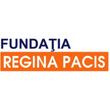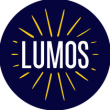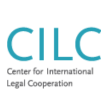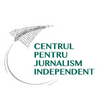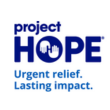Organizații vizate:
Achiziții de bunuri și contractări de servicii
- Detalii
- Categorie: Achiziție bunuri, Contractare Servicii
Terms of references for selecting a national/ international consultant to perform the external final evaluation of the “Partnerships 4 Women Leadership and Good Governance” Project
Informațiile prezentate în articolul de mai jos pot să nu mai fie actuale sau să nu mai reflecte activitățile și programele curente. Anunțul este păstrat în arhivă pentru a asigura transparența și accesul public la informațiile despre inițiativele și proiectele implementate anterior.
|
Organization: |
Friedrich-Ebert-Stiftung Moldova (FES) and AO “Institutum Virtutes Civilis” (IVC) |
|
Sector: |
Civil society development |
|
Term Duration: |
External evaluation: January - February 2024 |
|
Implementation period: |
January - March 2024 |
|
Location: |
Chisinau, Republic of Moldova |
|
Required Language(s): |
Romanian, English |
|
Closing Date: |
October 25, 2023 |
About the project
The “Partnerships 4 Women Leadership and Good Governance” Project was launched in April 2021. The project is implemented by the Friedrich-Ebert-Stiftung Moldova (FES) and AO “Institutum Virtutes Civilis”, with the financial support of the European Union and FES. The project implemented period is April 2021- April 2024 and has the following outcomes:
- Improved capacity of CSOs, CBOs and LAGs to influence policy making at the local and
national levels;
- Improved capacity of local authorities for an open dialogue with the civil society actors, to ensure a transparent and participative decision-making process that responds to the citizens’ needs;
- Enhanced capacity of women for participation in the decision-making processes at all
levels;
- Enhanced public awareness of the role of women in good governance and sustainable
development.
At the impact level, the project aims at achieving strong civil society actors that enhance governance at the national and local level and shape the life of their communities.
Intervention logic
The project addressed three interlinked problems in Moldova:
- local CSOs lack capacity to influence the decision making and public confidence in their abilities are low;
- the quality of local public policy is low, including due to a very limited involvement of the CSOs in the participatory public policy drafting processes;
- women remain significantly under-represented in the decision-making positions, while the public perception at local level of women’s role in politics and ensuring good governance continues to be rather negative.
Thus, the intervention seeks to create a logical chain of activities that will eventually lead to an increased level of participation of CSOs at local and national levels in the decision-making process, stronger and more active local and regional actors, and an increased number of women holding public office of elected positions in local public administration. The following chain of activities are in the process of implementation: (1) training for civil society to engage in governance and gender issues, (2) conducting gender audits and support the process of drafting gender action plans, (3) identifying policy options to address gender inequalities, (4) undertaking advocacy activities, (5) providing grants to support initiatives, (6) sharing best practices, (7) training women to participate more actively in public and political life, and (8) raising awareness.
On March 31, 2024, the project will mark its third and final year of implementation. The purpose of the external final evaluation of the project implementation is to assess the level of achievement of the input and output indicators at project completion. The contracted consultant shall evaluate how and to what extent the indicators were achieved, and the main barriers that caused deviations. The consultant shall also make a series of recommendations.
- Purpose of the assignment
The purpose of the final evaluation is to create an accurate and comprehensive picture of the project results against its indicators. The following aspects will be assessed:
- the effectiveness of awareness-raising activities of the role of women in good governance and sustainable development;
- the project impact with regard to the capacity of women for participation in the decision-making processes at all levels;
- the capacity of CSOs, CBOs and LAGs to influence policy making at the local and national levels;
- the degree to which capacity has been built within CSOs and CBOs to engage effectively in policy dialogue;
- the extent of cooperation between CSOs/ CBOs and LPAs to improve governance;
- the effectiveness of awareness-raising activities with respect to the role of women in public life;
- the degree to which lessons have been shared with other stakeholders, and approaches have been take-up and replicated, or evidence generated;
- the impact of the W4L academy on improved women’s political participation and engagement.
- Description of the activity
The selected consultant/ external evaluator shall be responsible for conducting the project final evaluation and developing the final evaluation report. Throughout the entire process, the external evaluator shall have access to the Project staff, MEL data, documents, and possibility of interaction with the Project partners and beneficiaries (participants in the project activities). The evaluation shall include desk review and field visits.
- Timeframe and deliverables
The assignment shall conduct in the period of February - March by the selected consultant that shall work both remotely (via e-mail, Skype etc.) and in Chisinau and target raions.
The main expected outcome: The final evaluation report.
- Methodology
The selected consultant shall propose the methodology for the final project evaluation. The proposed methodology should address sufficiently the preliminary issues and questions outlined in the ToR, detailing the specific review issues, questions, methods of data collection and analysis that will be undertaken. The methodology shall encompass a combination of both qualitative and quantitative methods. It shall also allow for a wide consultation with all interested partners and stakeholders. It is suggested that the methodology include, but not be limited to the below-mentioned aspects. The consultant is expected to propose his/her own methodology and justify and explain it. The final evaluation shall consist of the following activities:
a) Document review: The consultant will review of relevant project documents including:
- Project proposal;
- Annual action plan;
- Monitoring, Evaluation and Learning Framework;
- Annual Project Activity Reports;
- Implementing Partner Agreements;
- Media reports;
- Minutes of the Project Steering Committee meetings etc.
b) Field visits. The field work shall focus on the project activities that have been undertaken in the four raions/ districts. During these visits, the consultant shall contact, amongst others, local government officials, local communities, local public institutions, non-governmental organizations (NGOs) and community-based organizations (CBOs) involved in the project activities. The project team will offer a list of project beneficiaries and the consultant will select 10 people for interviews.
c) Interviews. Interviews will be carried out during field visits. Appropriate questionnaires shall be developed by the international consultant and discussed with Project Management Team for approval. Key informants will be drawn from the key project stakeholders including the beneficiary communities.
d) Evaluation Report
- Required skills and competencies
The following are the required skills and competencies expected from the selected applicant for conducting the Project final evaluation. In the case of an evaluation team, it is expected that the team leader should match all required skills and competencies presented in these ToR.
Education:
- Advanced degree in relevant discipline (e.g. gender, development and social studies, sociology, political science, etc.);
- Advanced degree in project management and/ or evaluation will be considered an asset.
Professional experience:
- At least 7 years of experience in project evaluation in a development context and proven accomplishment in undertaking evaluations;
- Experience in evaluating gender equality and human rights issues – related programmes/ project.
- Experience with EU financed projects will be an advantage.
Knowledge and skills:
- Knowledge of evaluation processes and methodologies;
- Knowledge of results-based project management;
- Proven expertise in evaluating projects focusing on human rights and/ or gender equality;
- Extensive knowledge of qualitative and quantitative evaluation methods;
- Excellent written and spoken English and presentation capacities.
- Application procedure
Interested consultants should send the documents listed below to the e-mail address: fes.moldova@fes.de, by October 25, 2023, (6:00 pm EET), with the subject line entitled “Consultant for Evaluation of the Partnerships 4 Women Leadership and Good Governance Project”.
- Personal CV (max. 3 pages, with contact data: phone and/or Skype ID for a possible interview). Please include or provide links to relevant previously drafted evaluation reports (if the reports are confidential, please provide a list of the projects for which you performed evaluations). The CV shall include the contact details (e-mail addresses) of at least 2 referees;
- Technical offer: the preliminary structure (outline) of the evaluation reports and a short description of the methodology that shall be applied to carry out the external project evaluation (1-2 pages);
- Financial Offer (FO) shall include: estimated number of days to carry out the review[1];
- Daily rate (gross) in EURO and total cost for all provided services according to this ToR[2].
Note: The draft methodology shall reflect the vision of the consultant on how the evaluations must be conducted and has the role to demonstrate the candidate’s understanding of the task. The final methodology shall be decided together with the project team after the signing of the contract.
Please note that only the shortlisted candidates will be contacted for an interview
*Note! The project team will offer logistical support to the consultant, including organizing the travel during her/his work.
- Selection criteria
The contract will be awarded to the most experienced consultant that will present the best technical and financial proposals. The following criteria for assessing the quality of the proposals will be applied:
|
Criteria |
Score |
|
Required skills and experience of the consultant (CV and experience):
|
35 points: |
|
Advanced degree in relevant discipline (e.g., gender, development and social studies, sociology, political science, etc.) and in project management and/or evaluation |
10 points |
|
Proven expertise in evaluating projects in the area of human rights and/ or gender equality |
15 points |
|
Excellent written and spoken English, and presentation skills |
10 points |
|
Short description of the methodology that will be applied to carry out the external evaluation, including the preliminary structure (outline) of the evaluation report |
35 points |
|
Technical Offer total |
70 points |
|
Financial Offer |
30 points |
|
Total max. score |
100 points |
For any additional questions please contact us via e-mail fes.moldova@fes.de. In order to ensure equal treatment and equal chances for all the potential candidates, FES will answer all the questions by October 20, 2023. The deadline for application is October 25, 2023.
[1] Travel expenses under this assignment will be covered by FES and IVC.
[2] All the amounts stated in the Financial Offer are considered Gross Amounts, meaning Fee Before Tax. For non-resident consultants these amounts are subject to 12% income Tax.



